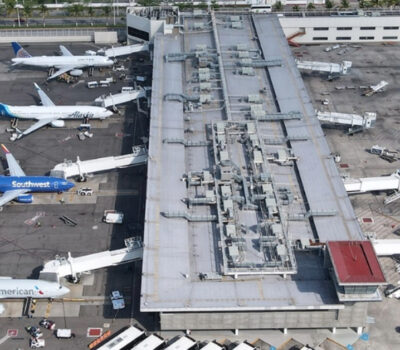The South American country of Uruguay has a long tradition of secularism, to the point that a popular president in the early 1900s insisted on writing the word “God” with a lowercase “g” whenever he wrote about his policies in local newspapers.
So when the Catholic Church of Uruguay recently proposed erecting a statue of the Virgin Mary in a park next to a popular promenade, a debate erupted over whether religious symbols in public places violate the separation between church and state.
Local authorities will decide on the petition, but that hasn’t stopped lawmakers nationwide from weighing in.
Even a secular state should not go to “extreme abstinence” when it comes to religion, wrote four lawmakers from different parties in the lower chamber of Parliament in an open letter endorsing the statue.
Uruguay’s constitution established religious neutrality that should not be decided by “consumer taste,” responded Sen. Ope Pasquet, an opponent of the statue.
“I didn’t think there was going to be this kind of resistance,” Montevideo’s archbishop, Cardinal Daniel Sturla, told The Associated Press. “Our city must be among the few in Latin America and the whole Christian world that don’t have a public image of the Virgin.”
Although some Latin American countries, such as Mexico, share a strict anticlerical tradition with Uruguay, the proposal wouldn’t have raised eyebrows in many of the region’s other capitals. About 40 percent of the world’s Catholics, or 425 million, are in Latin America, and symbols of the faith are ubiquitous.
In Brazil, the Christ the Redeemer statue is the postcard image of Rio de Janeiro. Statues of the Virgin Mary in Bogota, Colombia, Quito, Ecuador and Santiago, Chile, stand tall on the cities’ hills as revered icons and major tourist attractions.
[divider style=”solid” top=”20″ bottom=”20″] Uruguay’s president calls Mexico a ‘failed state’ [divider style=”solid” top=”20″ bottom=”20″]
Uruguay has such a strong anti-religious ethos that Dec. 25 is officially designated as “Family Day.” Sturla, the archbishop, noted dryly that while attending a conference in Spain last year, “someone introduced me by saying that in Uruguay Holy Week is called Tourism Week.”
In the small nation sandwiched between Argentina and Brazil, 37 percent of the people report no religious affiliation, according to a 2014 survey by the Pew Research Center in Washington. That includes atheists, agnostics and people with spiritual beliefs that are not part of an organized faith. Just 42 percent of Uruguay’s 3.3 million identify as Catholic, a much lower percentage than any other Latin American nation.
Uruguay’s anticlericalism dates back to the two terms in the early 1900s of President Jose Batlle y Ordonez, who was ahead of his time in promoting social change, from the eight-hour workday and maternity leave to separation of church and state.
In addition to writing God with a lowercase “g,” he ordered all crucifixes removed from public hospitals and abolished religious teachings in public schools.
In keeping with that tradition, Montevideo councilwoman Mariana Felartigas argued in an op-ed that public spaces should be kept free of religious symbols.
“Public spaces are democratic domains where people should feel free and equal,” she wrote in late February in Montevideo.com after the statue was proposed.
Supporters of erecting the Virgin Mary statue in a public place note that the Uruguayan capital has a statue for Yemanja, the African goddess of the seas, which sits a few kilometers (miles) away from the same promenade where the statue of the virgin would go up.
“The statue of the Virgin would just add up to what’s already there,” said Sturla.
Montevideo city authorities have not set a date to discuss or vote on the matter.
The people who frequent the area where the statue would be have mixed feelings.
Pablo Gonzalez, a personal trainer who works with people in the park, backs the proposal, noting the Yemanja statue as well as a carved memorial stone that features an elaborate cross and sits in a public plaza. It remembers the Armenian genocide.
“It would be different if none of those were permitted,” he said.
But Santiago Izaguirre, a college student who lives in the area, says the Virgin Mary statue is a bad idea.
“To respect everybody’s opinion, the park should not have religious images,” he said.
The South American country of Uruguay has a long tradition of secularism, to the point that a popular president in the early 1900s insisted on . . .












